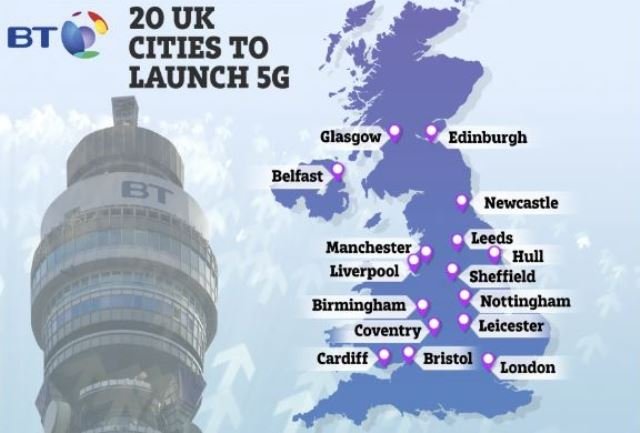BT Group today said it increased its capital expenditure by £225 million, excluding BDUK grant funding deferral, to £1.882 billion in Q2 fiscal 2019-20 to give extra focus on network.

BT Group’s spending was £455 million in Consumer, £233 million in Enterprises, £96 million in Global and £1.015 million in Openreach.
BT Consumer division’s capital expenditure spent rose 22 percent, due to investment in the core broadband network along with spend on the 5G network. EE’s 5G network is live in over 20 cities and large towns. Its 5G coverage will reach 25 cities by the end of the year.
BT Enterprises’ capital expenditure dipped 5 percent, driven by the upfront cash payment of £100 million received as part of its deal with Cellnex in Q1 2019-20.
BT Global’s capital expenditure fell slightly due to lower project spend and timing of spend in the year.
BT has retained its capital expenditure at £3.7 billion – £3.9 billion for the current financial year.
BT’s capital investment reflects focus on 5G and Fibre Cities program. It has lowered spend on the emergency services network (ESN) and non-5G mobile network. BT also spent £494 million on customer-driven initiatives, £357 million on systems and IT, and £76 million on non-network infrastructure.
Openreach expanded its FTTP network, supporting the Government’s ambition of gigabit-capable broadband nationwide. Openreach aims to deliver FTTP to 4 million premises by March 2021. Its fibre network reaches 1.8 million premises. It is building at a run rate of nearly 23000 premises passed per week on average.
Openreach announced the launch of new FTTP 1Gbps and 550Mbps products. It has covered 4.2 million premises to date with FTTP and Gfast coverage; It announced plans to build FTTP in 103 locations.
BT reported revenue of £11.467 billion, down 1 percent, mainly reflecting the impact of regulation, declines in legacy products, and strategically reducing low margin business, during the September quarter of 2019.
